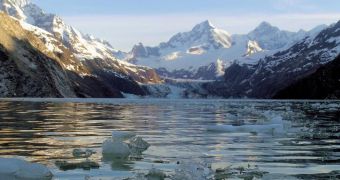Researchers with NOAA say that, as shown by recent investigations, ocean acidification stands to greatly affect fisheries in Alaska, and consequently impact on human communities in this part of the world.
In a paper in the journal Progress in Oceanography, the specialists say that, due to the fact that they are rather cold and can therefore absorb more carbon, Alaska's coastal waters stand to become increasingly acidic at an alarmingly fast rate.
What's more, evidence indicates that, due to ocean circulation patterns in this part of the world, Alaska's coastal regions will witness naturally acidic deep ocean waters rising towards the surface. This too will affect marine ecosystems.
Creatures such as shellfish, corals, the red king crab, and the tanner crab have trouble growing and surviving in highly acidic waters. Consequently, scientists fear that, as the makeup of Alaska's coastal waters changes, so will local ecosystems.
“Ocean acidification is not just an ecological problem – it's an economic problem. The people of coastal Alaska, who have always looked to the sea for sustenance and prosperity, will be most affected,” says study co-author Steve Colt.
By the looks of it, the acidity of waters off Alaska's coast has already increased to a considerable extent. Still, specialists warn that, under a business-as-usual-scenario, things will only get worse in the years to come.
In light of these findings, NOAA researchers recommend that efforts be made to protect communities in Alaska against the effects of the predicted drop in the value of local commercial fisheries, EurekAlert reports.
“All Alaskans need to understand how and where ocean acidification threatens our marine resources so that we can work together to address the challenges and maintain healthy and productive coastal communities,” argues Steve Colt.

 14 DAY TRIAL //
14 DAY TRIAL //